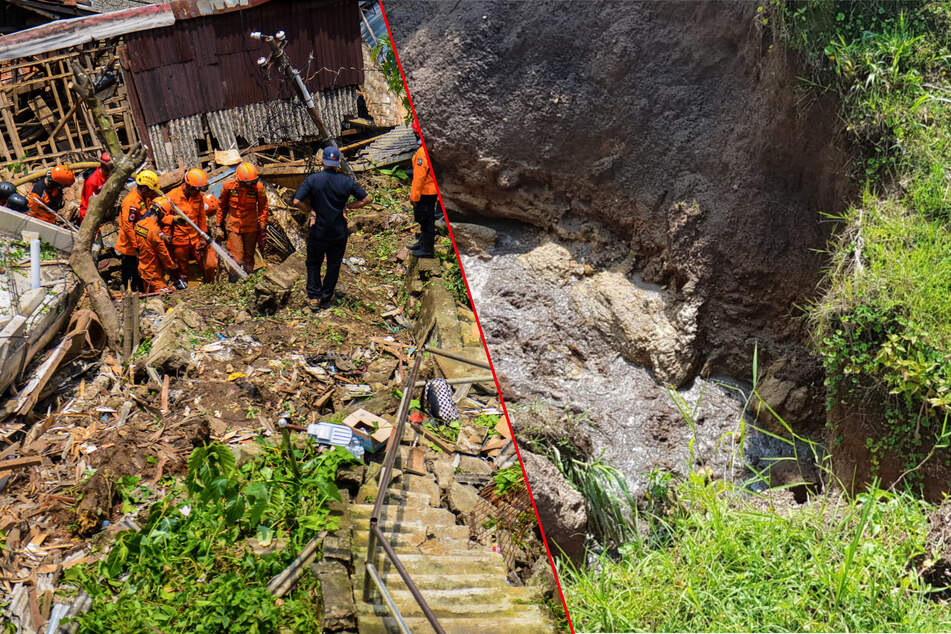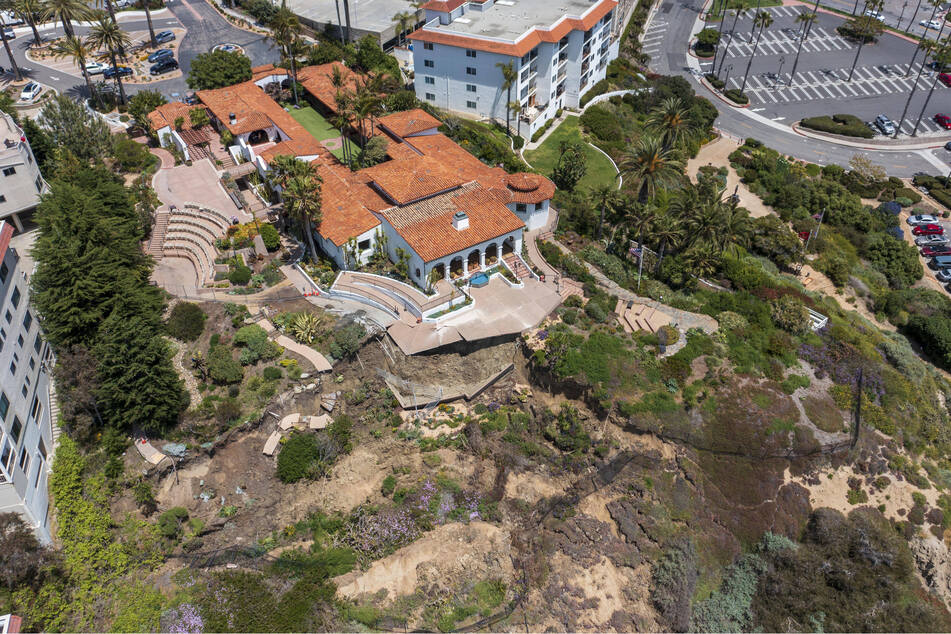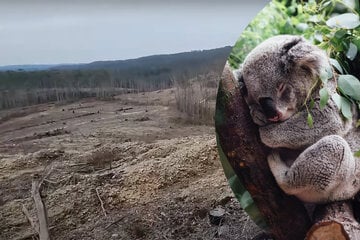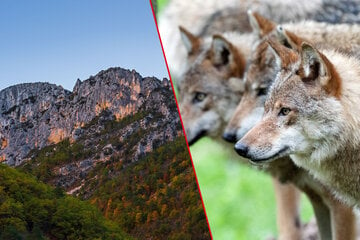Landslides are killing thousands – but why aren't we talking about it?
We still don't really know how many people die each year from landslides, but what we do know is that the number is rising, it is climate change-related, and barely anyone is talking about it.

There's something oddly comforting about the sound of rain on a thin tin roof, despite the deafening noise.
Between Christmas and New Years in 2019, my partner and I found ourselves sleeping under such a roof, on the banks of Lake Kivu in western Rwanda. We were grateful for the shelter.
We had set out on a five-day hike and were around twenty miles south of our starting destination of Gisenyi. When we woke the next morning the sun was shining, the birds were chirping, and the day looked perfect for hiking. There was just one problem: Overnight there had been landslides.
Only around half an hour down the track we came across the aftermath of our first one. It was wide and deep, as if some all-mighty being had stuck a knife into the land and torn a wound in nature. A suburbanite for most of my life, I'd never seen such a thing. My TV-coddled brain found it truly extraordinary.
The locals seemed relatively unfazed: it was a relatively normal occurrence to them, just a fact of life. A small child showed us safely across the gorge, and we were on our way. But it wasn't long before a second, and then a third landslide blocked our path. Navigation was like a video game, looking for the closest stable footing that was available.
These huge holes had appeared overnight during the storm and had wiped away entire roads. Looking at them, you could have easily imagined such a thing wiping away whole buildings and, indeed, they often do.
Earlier this month, in May 2023, heavy rainfalls led to more devastating landslides in this same region of Rwanda, killing more than 120 people and costing billions to the local economy. They were, and continue to be, truly devastating.
What are landslides? And what causes landslides in the first place?
Landslides are defined by the USGS as "a serious geologic hazard common to almost every state in the United States". In the US, they are estimated to cause only around 25–50 deaths a year, but billions of dollars in damages.
These "serious geologic hazards" occur predominantly when an overabundance of moisture in the ground soil causes the physical instability of a landscape. When this instability becomes too much, the ground shifts, soil breaks up, and the land slides away.
In America, most focus is given to seaside mansions that get swept away from time-to-time, of which many have been built on the top of cliffs and are owned by very wealthy people. A lot more time is afforded to stories like these than anything in central Africa, South America, or Asia.
Recent landslides have, meanwhile, cost hundreds of lives in countries like Indonesia, Brazil, Uganda, the Democratic of the Congo, and of course Rwanda. It is being widely acknowledged that climate change is largely to blame.
According to the United Nations Development Program, there has been a 134% increase in flood-related disasters, fueled by climate change, since the new millennia. What's more, Africa is warming up even faster than the rest of the world. With that comes more rain, more water, and more devastation.
"East Africa has seen temperature increases of up to 1.7 degrees Celsius (approx. 3°F)", said Richard Munang, deputy director of the United Nations Environment Program (UNEP). This data seems to reflect the latest IPCC reports.

Where's the action on landslides outside of California?
The science is more-or-less in about the impact of climate change on flooding, landslides, and rapid soil erosion. TAG24 reported on the fact that landslides are one of the worsening effects of climate change, and are going to make life in the United States even harder over the coming decades.
What's curious is how little attention this all seems to get from government and the press. The Atlantic reported extensively on the subject last year, but where is everyone else? After doing a deep dive, the landscape seems pretty barren – pun intended.
If you want more shivers up and down your spine, scientific research shows that the death tolls we currently have are a vast underestimation. That means that the numbers quoted by the likes of the Atlantic and the New York Times (and, indeed, TAG24) are likely to be far less than reality.
We also have to remember that the human toll of landslides and climate disasters like go beyond immediate death tolls. Entire homes and towns are destroyed, leaving people homeless and often without a source of food. When a hospital gets swept away, like it did in Rwanda earlier this month, it leaves people without health facilities as well.
In 2021, Rwandan President Paul Kagame spoke of devastating weather, climate change, and landslides. In a statement given at the Climate Adaptation Summit, he drew attention to the issue and announced plans to try and mitigate disasters such as this.
The reality is that tragedies like those that occurred in western Rwanda and Uganda this month are set to become far more regular, and not unique to countries in the global south.
"As we work to slow the pace of climate change, we must also work to mitigate its effects," Kagame said. "In Rwanda, the changing climate is already making itself felt in unusually heavy rainfall and flooding. Changing weather patterns also affect agriculture."
Sooner or later, landslides likely won't be making headlines for swallowing million-dollar Californian mansions, but for claiming American lives. It's sad that it may take until such disasters reach North American shores for serious action to be taken.
Once it isn't a life lost on a distant shore, and instead it's golf courses and budget resorts that are being swept away, maybe those with money and power will finally step up to the plate.
Cover photo: Collage: IMAGO/NurPhoto & Evan Williams



